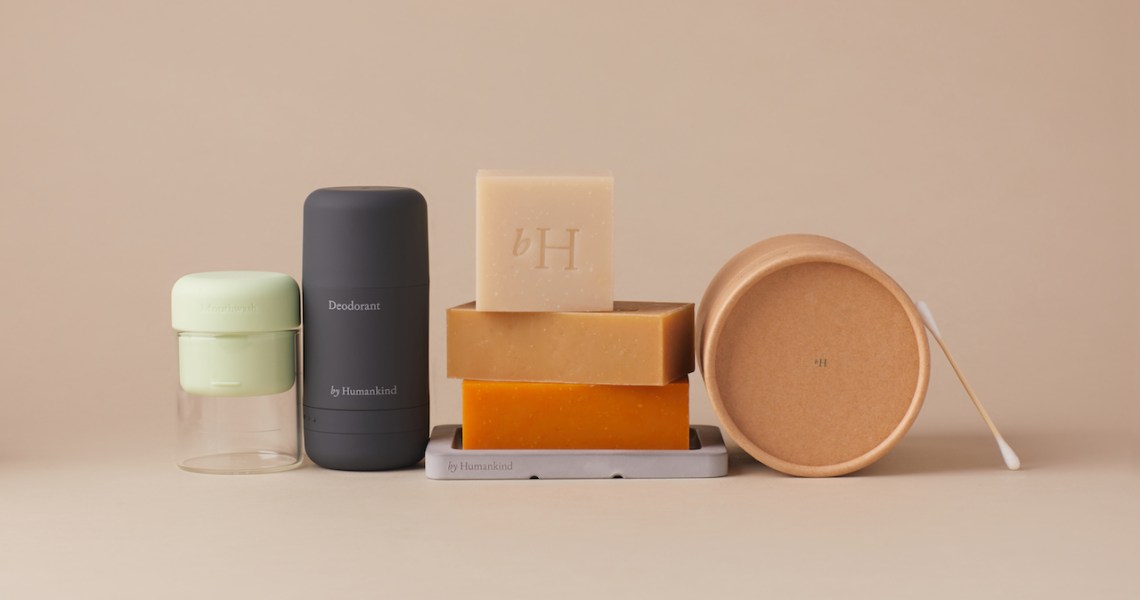For niche DTC personal care brands, it has never been easier to convince consumers to skip the drugstore and pay a premium for deliveries of sustainable versions of household goods like soap, lotion and shampoo.
Prior to the shutdowns, online sales had made up 11% of CPG sales, according to research firm IRI. But the millennial-friendly DTC business model has become more appealing as consumers seek out new brands to satisfy online orders. CPG e-tailer Public Goods, for example, has seen a fivefold sales increase since the start of the Covid-19 shutdowns in the U.S. Personal care brand By Humankind has also seen an increase, selling out of a newly launched hand sanitizer in 24 hours. According to data from retail marketing technology company Bluecore, DTC personal care product sales saw a 200% overall increase in sales in April.
“In [a matter of] a day, we had to hire an additional 20 people on the customer service team because our volume increased so dramatically,” said Public Goods founder and CEO Morgan Hirsh. The customer service team had previously consisted of only four people. The brand’s hand sanitizer is currently its best seller. As a site that also sells household and grocery goods, one of its other top sellers is ramen.
Having a mix of personal care and grocery items is “a huge advantage, from a value perspective,” said Hirsh. “People need hundreds of things, but they can only have brand affinity for a handful of brands. Human beings just don’t have the bandwidth to have deep feelings for that many companies out there.” Food made up only 25% of the brand’s business before the crisis, but that has risen to 50%.
“Unlike a lot of the traditional retailers, where that traffic is coming from store shoppers now using digital, these are net new customers coming to buy for the first time, or they’re now buying for a second time,” said Sherene Hilal, the svp for product marketing and business operations at Bluecore.
Consumer willingness to try new brands is at an all-time high as brand “disloyalty is the new normal,” according to Nielsen. The research firm found in 2019 that 46% of global consumers surveyed are more likely to try new brands than they were five years ago.
DTC brands have previously grappled with the question of whether or not to partner with physical retailers. DTC brands Flamingo and Harry’s launched in Target in 2019 and 2016, respectively. But By Humankind co-founder and CEO Brian Bushell said that its reliance on its own site for 95% of its sales is now an advantage. Prior to the pandemic, the brand had been considering physical retail partnership.
“Quite honestly, I feel lucky that we didn’t pull the trigger on any of those before this, because that would have definitely thrown us down and taken up resources and and caused us to have to do some really difficult things with regard to our business,” he said.
Public Goods, meanwhile, had previously relied on DTC e-commerce for 80% of its total sales, but that rate has gone up to 95% during the pandemic as its distribution to hotels like Ace Hotel has been halted. The brand is still moving forward with a rollout with a national retail chain in 2020 that it had started planning before the crisis; Hirsh would not share who its upcoming partnership is with.
“That’s still happening because the retailers are essential services,” said Hirsh. “They’re still open and driving sales.”
The question now is whether or not new customers will continue to turn to e-commerce for personal care as physical stores are now reopening.
Hilal noted that e-commerce was already gaining personal care market share before the pandemic. “What Covid-19 has done is that it has accelerated that tipping point and forced a lot of brands to make investments in digital, which is going to provide a better customer experience [that] will help customers adopt that channel first,” she said.




